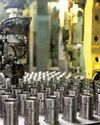
Why do the highly educated seek low-level government jobs? The answer lies deep within our system.
Government jobs at the lower end of the pyramid pay multiple times more than similar roles and qualifications in the private sector. People are attracted to the long-term job security, better working hours, little or no stress and pensions. There are other ‘attractions’ too, namely weak and often no linkages to performance or productivity. Some others are allured to government jobs for opportunities to ‘make’ money. The government ‘working’ class are aristocrats.
Most economies celebrate this ‘problem’
People entering the workforce earn and spend, trigger demand and consumption. The virtuous cycle grows the economy.
Our working age population is growing at a faster rate than the overall population. A million enter the workforce every month. Less than a third acquire jobs. Jobs are scarce. The situation is alarming, equally dismal. A third of the unemployed are so disheartened that they ‘stop’ looking for jobs.
A high proportion of the ‘qualified & educated’ lack the skills for corporate jobs. The corporate sector employs less than 10 per cent of the employed. The unorganised sector pays less, provides neither job security nor benefits. The corporate sector pays well, the government and the PSUs even more so.
A Crux research highlights that the employment market is elitist (government ‘overpays’ its own) at one end of the band. As much as 90 per cent of the ‘employed’ at the other end are exploited. Less than 40 per cent of jobs pay ‘regular’ salaries. Two thirds of the self-employed and contract workers make less than Rs 10,000 per month, substantially lower than the per capita income.
This story is from the {{IssueName}} edition of {{MagazineName}}.
Start your 7-day Magzter GOLD free trial to access thousands of curated premium stories, and 9,000+ magazines and newspapers.
Already a subscriber ? Sign In
This story is from the {{IssueName}} edition of {{MagazineName}}.
Start your 7-day Magzter GOLD free trial to access thousands of curated premium stories, and 9,000+ magazines and newspapers.
Already a subscriber? Sign In

MEMORIES & IMPRESSIONS
Ratan Tata was an exceptional human being. He was a visionary leader, esteemed industrialist, and a humanitarian, who left an indelible mark on India and the world.

The Robotaxi Market
The robotaxi market is shaping up to be a high-stakes battleground as tech giants and automakers race to transform urban mobility.

And the Nobel Prize Goes to AI
The recent Nobel Prize T awards to AI pioneers affiliated with Google have sparked a broader conversation about Big Tech's influence on research and the limitations of traditional prize categories.

Ola Electrified
Once considered a trailblazer in India’s electric vehicle (EV) ecosystem, Bhavish Aggarwal’s Ola Electric now faces a major accountability crisis.

Sharp Slide in Industrial Output on Eve of Deepavali
India’s index of industrial production (IIP) saw a sharp reversal in August, contracting by 0.1 per cent, in stark contrast to the 4.7 per cent growth in July, mostly because of significant contractions in mining and electricity generation.

Heralding the Solar Era with Sustainable Electrification
RAJEEV KASHYAP on the economics of solar power, the hurdles in scaling it, and much more

A WELL-GREASED MACHINE
The OmniBook X14 laptop runs on first-generation Snapdragon X Elite, which bets big on Al-enabled productivity and battery life, but falls short when it comes to overall experience, says Deep Majumdar

DO NOT LETA HEALTH CRISIS RUIN YOUR FINANCIAL HEALTH
For a family of four living in a metro, it is recommended to opt for a family floater health insurance plan with a sum insured of at least Rs 15-20 lakh

Disruption Ahead: Beyond Organisation Charts and Structures
ALBERT EINSTEIN FAMOUSLY said, “We cannot solve our problems with the same thinking we used when we created them.

Dr. Rahul Shivajirao Kadam: A Visionary Leader Blending Sustainability, Innovation, And Social Empowerment
We are on the stage of global warming, and these technologies not only help prevent further damage but also leave behind a better environment for future generations.